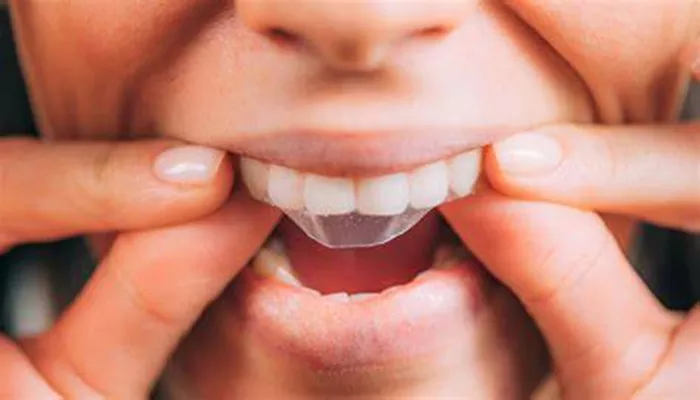Teeth whitening strips have become a popular choice for many people seeking a brighter smile. They are convenient, easy to use, and can deliver noticeable results. However, a common question arises: is it safe to use expired teeth whitening strips?
In this article, we will explore the potential risks and effects of using expired whitening strips, how they work, and best practices for teeth whitening.
Understanding Teeth Whitening Strips
What Are Teeth Whitening Strips?
Teeth whitening strips are thin, flexible pieces of plastic coated with a whitening gel. This gel typically contains hydrogen peroxide or carbamide peroxide, which are common bleaching agents. The strips are designed to adhere to the teeth and deliver the whitening agents directly onto the enamel.
How Do Teeth Whitening Strips Work?
When applied to the teeth, the active ingredients in the whitening gel penetrate the enamel and break down stains. These stains can come from various sources, including coffee, tea, red wine, and tobacco. The result is a brighter, whiter smile after consistent use.
Benefits of Using Teeth Whitening Strips
Convenience: Teeth whitening strips are easy to use and can be applied at home without the need for professional assistance.
Cost-Effective: They are generally less expensive than professional whitening treatments.
Quick Results: Many users notice a difference in their tooth color after just a few applications.
What Happens When Teeth Whitening Strips Expire?
Expiration Dates Explained
Teeth whitening strips, like many cosmetic products, come with an expiration date. This date indicates the period during which the manufacturer guarantees the product’s safety and effectiveness. After this date, the potency of the active ingredients may diminish.
Potential Risks of Using Expired Whitening Strips
Reduced Effectiveness: The primary concern with using expired whitening strips is that they may not work as intended.
The whitening agents can lose their potency over time, leading to less noticeable results.
Chemical Changes: Over time, the chemicals in the whitening gel can break down or change. This can lead to unexpected reactions when applied to the teeth.
Increased Sensitivity: Using expired strips may cause increased tooth sensitivity or gum irritation. If the active ingredients have degraded, they may not adhere properly to the teeth, leading to uneven application and potential discomfort.
Risk of Contamination: Expired products may be more susceptible to contamination. If the packaging is compromised, bacteria could potentially enter and affect the product’s safety.
Signs That Teeth Whitening Strips Are Expired
Visual Inspection
Before using teeth whitening strips, inspect the packaging and the strips themselves. Look for the following signs:
Discoloration: If the strips appear discolored or have changed color from their original state, they may be expired.
Dryness or Crumbling: If the strips feel dry, brittle, or crumble easily, they may no longer be effective.
Damage to Packaging: If the packaging is torn or damaged, the strips may have been exposed to air and moisture, leading to degradation.
Check the Expiration Date
Always check the expiration date printed on the box. If the date has passed, it is best to avoid using the strips.
What to Do If You’ve Used Expired Whitening Strips
Monitor for Side Effects
If you have used expired teeth whitening strips, monitor your mouth for any adverse reactions. Look for signs of sensitivity, gum irritation, or unusual discomfort. If you experience any of these symptoms, consider consulting a dentist.
Rinse Your Mouth
If you notice any irritation after using expired strips, rinse your mouth with water to remove any remaining gel. This can help alleviate discomfort caused by the ingredients.
Consult a Dentist
If you have concerns about using expired whitening strips or experience prolonged sensitivity, it is advisable to consult a dental professional. They can provide guidance and recommend appropriate treatments.
Best Practices for Using Teeth Whitening Strips
Follow the Instructions
Always follow the manufacturer’s instructions provided with the whitening strips. This includes how long to wear them and how often to use them.
Store Properly
Store teeth whitening strips in a cool, dry place, away from direct sunlight. Proper storage can help prolong their shelf life.
Avoid Overuse
Using whitening strips more often than recommended can lead to increased sensitivity and damage to the enamel. Stick to the recommended usage guidelines.
Consider Professional Options
If you are concerned about the effectiveness or safety of over-the-counter whitening products, consider consulting your dentist for professional whitening treatments. These treatments can provide more significant results and are tailored to your specific needs.
Alternatives to Teeth Whitening Strips
Whitening Toothpaste
Whitening toothpaste can help remove surface stains and maintain a bright smile. While they may not provide the same dramatic results as strips, they are a safe and effective option for daily use.
Professional Whitening Treatments
Dentists offer professional whitening treatments that can provide faster and more effective results. These treatments often use stronger whitening agents and are supervised by dental professionals.
Natural Remedies
Some people opt for natural remedies, such as baking soda or activated charcoal, to whiten their teeth. While these methods can be effective for some, they may not provide the same level of whitening as commercial products.
Conclusion
Using expired teeth whitening strips can pose potential risks, including reduced effectiveness, increased sensitivity, and possible irritation. It is essential to check the expiration date and inspect the strips before use. If you have used expired strips and experience any adverse effects, monitor your symptoms and consult a dentist if necessary.
For safe and effective teeth whitening, always follow the manufacturer’s instructions and consider professional options if you have concerns. Maintaining good oral hygiene and regular dental check-ups will also help keep your smile bright and healthy. Remember, a bright smile is not just about appearance; it’s also about maintaining good oral health.
Related topics:

